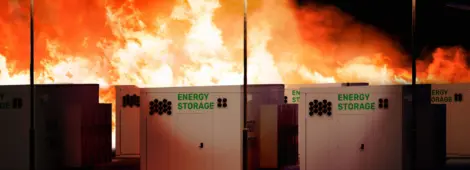
USE "LESSONS LEARNED" TO IMPROVE EMERGENCY INCIDENT RESPONSE
“Mistakes are the portals of discovery” - James Joyce (1882-1941)
Hurricane Sandy, the October 2012 super storm, affected every aspect of life for millions of residents along the highly populated northeast coast of the United States, and required emergency response measures from both the public and private sectors in unprecedented measures. From every event, whether a planned exercise or an actual emergency incident, lessons can be learned to improve the outcome of the next response. Emergency managers, both in municipalities and the corporate arena, should not camouflage failures or miscommunications from Hurricane Sandy or other incidents, but instead draw from the emergency response to improve disaster preparedness.
Immediately after an exercise or incident response, it is critical to conduct multi-level post incident reviews, gather conclusions from these interviews, and identify lessons learned. Emergency managers should incorporate these ideals into emergency response plans, highlight any additional training measures, and inject new responses measures into exercise simulations. Companies should evaluate actual recovery times for critical business processes and attempt to mitigate any obstacles that led to perpetuating the business disruption.
The post-incident review is an evaluation of incident response used to identify and correct gaps, errors, and deficiencies, as well as determine strengths. Timing of a post-incident review is critical. An effective review requires that response and preparedness discussions take place while a disaster or exercise is fresh in the minds of decision makers, responders, regulators, and the public. From this review, incident response lessons learned can be identified and preparedness improvement work can begin.
The post-incident review process is intended to identify which response procedures, equipment, and techniques were effective or ineffective, and the reason(s) why.
Post-incident review checklists should include, at a minimum::
- Name and typical duties of personnel being debriefed
- Date, time and location during incident
- Specific actions performed
- Responder’s view of the positive aspects of the response and areas for improvements
- Recovery time and possible mitigation measures for improvement
- Potential lessons learned
- Necessary program and plan revisions
- Effectiveness of equipment used
- Overall post-incident perception and implications on the company
Key areas of consideration1 that should be analyzed by a review team can include, at a minimum:
- Mobilization procedures for personnel and equipment
- Implementation plans and procedures
- Internal and external communications
- Management and coordination of emergency response
- Stakeholder reaction
- The short and long term consequences of the incident
Emergency response shortfalls can come from a variety of areas or functions. Applying incident response lessons learned to a crisis management or emergency response program allows procedures to align with proven and realistic scenarios. Utilizing this information provides emergency managers the means of improving applicable programs to better prepare for future situations.
The following five concepts are examples of incident "lessons learned" that should be examined and incorporated for improved preparedness:
- Unidentified potential risk or hazard: A hazard and vulnerability analysis should be performed, and processes and procedures should be developed and added to the plans.
- Management gaps and weaknesses: If the post incident reviews revealed weaknesses or gaps in the organization, the emergency response management structure should be modified and emergency plans revised.
- Ineffective policies and procedures: If the policies and procedures fail to address key issues during the incident, policies and procedures need to be modified to address inadequacies.
- Lack of response proficiency: If response was faulty due to deficient training, exercising, or planning, these efforts should be amplified and personnel should be familiarized with these modifications
- Planning deviations: If participants successfully diverged from existing processes, procedures, or plans, these areas should be modified to reflect the reality of the performance.
Applying incident response lessons learned to an emergency management program enables the ability to use experiences as a means to improve preparedness for future emergency scenarios. By analyzing the past, executing enhancements, and reinforcing strengths, companies and municipalities will be better prepared to not repeat history.
1. Disaster Recovery Journal, The Post-Incident Review Process -Can You Correct the Weakness. Mark Morgan.












